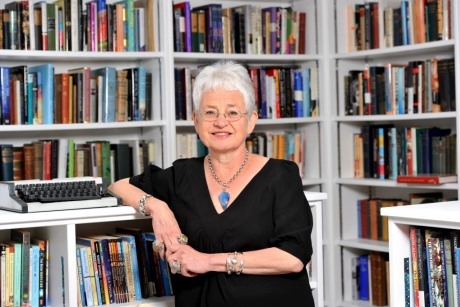
Author Jacqueline Wilson tells us about her most memorable school trips and how fiction can inspire travel and adventure in pupils.
Inspiring pupils with literature can be difficult, especially with the increase in technology and the use of the internet. That’s why it’s important to find new ways to inspire students.
Much loved children’s author, Jacqueline Wilson spoke to School Travel Organiser about her school trip experiences, recalling them as “vivid memories”. Wilson’s books tackle a lot of difficult subjects, a lot of which many children in reality are facing. We asked her about the themes behind her writing and why they are so important to write about and for children to read about.
“I think nearly all themes have a place in children’s fiction,” Jacqueline stated. “Themes about journeys, either literal or emotional, are definitely important. I’d also stress themes about kindness and resilience and determination – as long at the stories were told deftly, with a light touch.”
Wilson’s books involve Double Act, The Illustrated Mum, The Suitcase Kid, Bad Girls, The Bed and Breakfast Star and The Worry Website.
Jacqueline then went on to talk more about learning outside the classroom and told us how she thinks fiction can inspire outdoor learning and the want to spend time in nature.
She told STO: “I think reading all sorts of animal and adventure and sporting stories can inspire children to go outdoors – plus gentler family stories about holidays and trips.
“I think school travel and trips should be very much part of a child’s experience, especially as many might not venture far otherwise.”
Talking about her own school travel experience, the author commented: “I still have vivid memories of several school trips to London, to the theatre, to the Natural History Museum, and a week’s holiday in Bruges, the first time I’d ever been abroad.”
School travel is known for creating lasting memories, building friendships as well as self-confidence, and allowing youngsters to feel involved in the world and inspired by what they see. It is a process of seeing and doing rather than the usually type of learning they may be used to in a classroom. Whether a trip links to Literacy and English or another subject, such as Science of History, giving students these opportunities is crucial.
Jacqueline went on to tell us about a particular school trip that she always remembers: “I went on the school trip to Bruges when I was fourteen or so. It was the first time I’d flown, and I was alarmed to discover the plane rose in the air diagonally!
“I thought Bruges was beautiful and loved the Flemish paintings in the museums and churches – but I admit my little group of friends were also interested in the boys in the hotel next door and the chip van in the market place!”
Whether learning outside or inside there is a multitude of ways that Literacy can be taught, from sitting in the school fields on a sunny day reading, to exploring a new attraction to gain inspiration for a writing activity, to finding new ways to engage your class.
Jacqueline finished by saying: “If it’s at all possible I think the simplest way to encourage a love of books is to find a half hour when a teacher reads aloud to the class and they listen for the sheer pleasure of the experience. There could also be after school book groups, book quizzes, and drama sessions based on favourite stories.”










